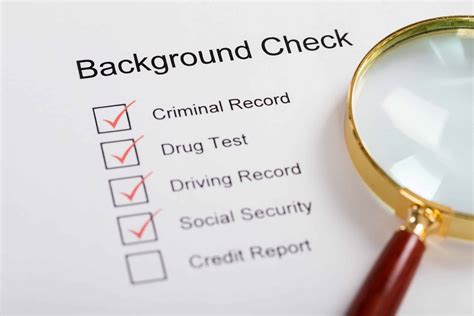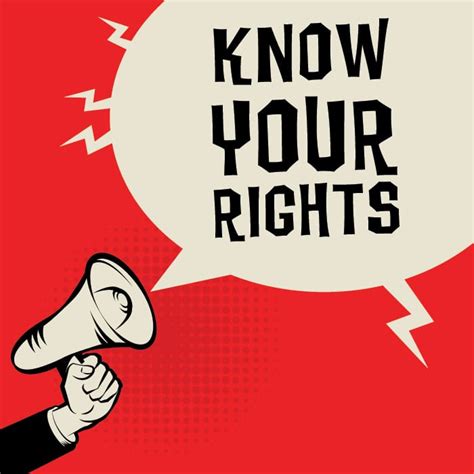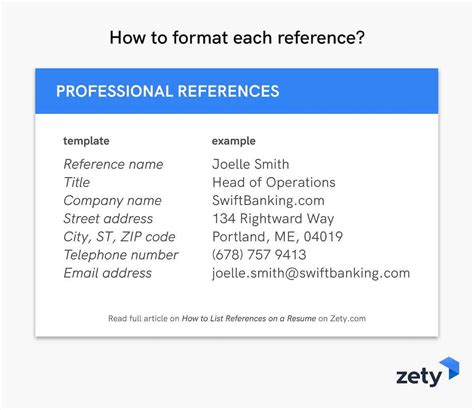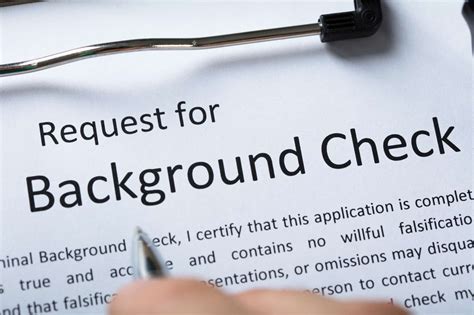Understanding the Purpose of Background Checks
Background checks have become a routine part of the hiring process for many organizations. They are meant to reveal any red flags that may raise concerns for employers before they commit to hiring someone. These screenings vary from one employer to another depending on the level of the job involved. Aiming to protect businesses from potential fraud, theft, violence, lawsuits, or damage to reputation, background checks make it less likely that the hiring decision will pose any risk to the employer.
An employer may use a background test to learn more about a job applicant such as their criminal record, education, employment history, and credit history. The information obtained from these searches helps employers to decide whether or not an applicant is suitable for a position. Many employers in the US conduct background checks in line with the standards of the Fair Credit Reporting Act (FCRA). This federal law regulates how background checks may be performed and how to inform applicants of the results. Organizations that breach FCRA regulations may be subject to penalties.
The scope of background checks varies depending on the position for which a job candidate is under consideration. Some positions that require high levels of responsibility and trust such as attorneys, physicians, law enforcement officers, and public officials may be subjected to even deeper background checks that may take weeks or even months to complete.
The different forms of background tests include:
- Criminal history – A search of state and national criminal databases can reveal whether someone has been convicted of a crime. Employers may consider only the relevant offenses that pertain to the job being applied for. For example, a fraud charge may disqualify someone from a job in banking or financial management, but not prevent someone from working in a customer service representative position.
- Education verification – Employers may verify that a job applicant attended a school and earned a degree. They may confirm whether the degree earned by an applicant is from an accredited institution.
- Employment verification – Employers can verify past employment history by contacting previous employers to check the positions held and the dates of service. They may also seek information on the reason for leaving prior jobs or whether there were any disciplinary issues.
- Reference checks – Employers may call previous supervisors or coworkers to gather an individual’s previous work performance information. This can help detect any discrepancies in applicant resumes as well as uncover critical information about work-related traits such as punctuality, performance level, attendance, and attitude towards colleagues.
- Credit history check – Employers may check credit reports to learn more about the job applicant’s financial status. While a poor credit history may not automatically disqualify a candidate from a job, it may indicate a lack of financial responsibility to a potential employer. There are exceptions, for some financial positions, for example.
- Drug testing – Employers can test job applicants for illegal drugs. Pre-employment drug testing is most commonly used in safety-sensitive industries such as transportation or manufacturing.
- Social media review – Employers may carry out a search to learn about job candidate’s activity on social media platforms to evaluate their personality traits, online reputation, and communication style.
Comprehensive background checks help hiring managers to make informed decisions about prospective hires regarding their probability of engaging in misconduct that could harm the organization. It also helps companies to provide a safe and secure workplace for their employees and customers. Understanding the purpose of background checks can help organizations to conduct more accurate and efficient screenings for job candidates.
Common Components of a Background Check
A background check is a comprehensive process that many employers run before hiring an employee to ensure the candidate has a clean history and is eligible to work in the country. The background check process may vary based on the employer’s preferences and requirements. However, most background checks will include the following common components:
1. Employment History Verification
This component verifies the accuracy of the information provided by the candidate regarding their employment history. The employer may reach out to previous employers to confirm the start and end dates of employment, the candidate’s job title, and the reason for leaving the job.
2. Education Verification
Education verification is an essential part of a background check, especially for jobs that require specific degrees or certifications. The employer will verify the candidate’s educational background with the institution or the organization that issued the degree or certification. This verification process confirms that the candidate has the necessary educational qualifications required for the job. It also prevents the candidate from providing false educational documents or degrees that they have not earned.
The education verification process can take different forms depending on the job requirements. For example, some employers may only verify the degrees or certificates earned, while others may check the candidate’s entire academic history. The verification process can take several days to weeks, depending on the educational institution’s responsiveness and the completeness of the candidate’s education records.
Many employers will not only verify the candidate’s education but also check their academic performance. This may include confirmation of the candidate’s grades, courses completed, and any academic honors earned.
3. Criminal Records Check
The criminal records check is another critical component of a background check. Employers conduct this check to ensure that the candidate does not have a history of criminal activity that may make them unfit for the job. The criminal records check includes criminal history records held by local, state, and federal law enforcement agencies. The check may also include sex offender registries and terrorist watch lists
Some employers may decide not to hire candidates with a criminal record, while others may give an opportunity for candidates who have not committed violent or severe crimes and whose conviction is not related to the job responsibilities. It’s crucial to note that some states have laws that limit an employer’s ability to use criminal record information in making hiring decisions. In such cases, employers are required to follow the regulations that apply to their state.
4. Credit History Check
Some employers conduct credit history checks to assess an individual’s financial responsibility. Credit checks are common in the banking and finance industry but may apply to other industries, such as retail, where employees have access to cash or financial transactions. The credit check provides information on the candidate’s credit score, payment history and highlights financial delinquencies, bankruptcies, or other judgments that may negatively impact their creditworthiness.
It’s important to note that some states have limitations or restrictions on the use of credit information for employment purposes. Employers should follow regulations that apply to their state as they conduct background checks.
5. Reference Check
The reference check is where the employer confirms the character and work performance of the candidate based on feedback from the candidate’s professional and personal references. The employer may conduct an in-person interview or reach out to the references via email or phone call. The reference check provides the employer with insights into the candidate’s work ethic, behavior, and overall performance working with others.
It’s important to note that some employers may not consider the reference check as the sole factor for making hiring decisions, especially as some of the references may be biased towards the candidate. The reference check provides only a supplement to other background check components.
In conclusion, a background check is an essential component of the hiring process, and it helps employers make informed hiring decisions based on accurate and comprehensive information provided about the candidate.
Legal and Ethical Considerations for Employers and Job Seekers
Background checks have become a standard part of the hiring process for employers. However, there are certain legal and ethical considerations that both employers and job seekers should keep in mind before implementing or undergoing a background check. Here are three key considerations:
1. The Fair Credit Reporting Act
The Fair Credit Reporting Act (FCRA) is a federal law that regulates the collection, dissemination, and use of consumer information, including background checks. Under the FCRA, employers must obtain written consent from a job applicant or employee before conducting a background check. The employer must also provide a notice that includes a copy of the applicant’s or employee’s rights under the FCRA. If the employer decides not to hire an applicant based on information discovered in the background check, the employer must provide the applicant with a copy of the report and give them an opportunity to dispute any inaccuracies.
Employers must also comply with state laws related to background checks and must ensure that their background check policies and procedures do not discriminate against applicants or employees based on their race, color, religion, sex, national origin, or other protected characteristics.
2. Accuracy of Information
Job seekers and employers should also be aware of the accuracy of the information contained in background checks. Errors can occur due to a variety of factors, including incomplete or outdated information, identity theft, and mistaken identity. In addition, certain types of information such as arrest records or bankruptcies may not be legally permissible to consider in employment decisions, depending on the state.
If a job seeker believes that the information contained in their background check is inaccurate, they should contact the background check company and their potential employer to dispute the information. Employers should also have a process in place to ensure that any inaccurate information is corrected or removed from a background check report.
3. Privacy and Confidentiality
Background checks may include sensitive personal information such as criminal history, credit history, and medical records. Employers must take appropriate measures to ensure that this information is kept confidential and is only used for legitimate employment purposes. Job seekers should also be aware of their privacy rights and should not provide any sensitive personal information unless it is required for a legitimate employment purpose.
Employers must also comply with federal and state laws related to the privacy and confidentiality of background checks. For example, employers are prohibited from using background check information to discriminate against job applicants or employees based on their race, color, religion, sex, national origin, or other protected characteristics.
Overall, employers and job seekers should approach background checks with caution and should be aware of their rights and responsibilities under the law. By following legal and ethical guidelines, employers can make informed hiring decisions while also protecting the privacy and confidentiality of job seekers.
Tips for Job Seekers to Navigate Background Checks

Background checks have become an integral part of the job application process. They are a way for employers to verify the information provided by applicants and to ensure that they are hiring qualified and trustworthy individuals. Job seekers should be aware of the different types of background checks that employers may conduct and take steps to prepare themselves.
1. Know Your Rights

Job seekers have rights when it comes to background checks. Employers are required to obtain written consent from applicants before conducting a background check. In addition, job seekers have the right to request a copy of the background check report and to dispute any inaccuracies. It is important for job seekers to understand their rights and to exercise them if necessary.
2. Be Honest
One of the worst things a job seeker can do is to lie or withhold information on their application or resume. Employers may uncover lies or omissions during the background check process, which will almost certainly lead to the applicant being disqualified from the hiring process. It is always best to be honest and upfront about your qualifications, employment history, and any criminal convictions.
3. Prepare Your References

Employers often require that job seekers provide references who can vouch for their work ethic and reliability. It is important to choose references who know you well and can speak to your abilities and character. Before providing your references’ contact information, it can be helpful to give them a heads up that they may be contacted by a potential employer. This will give them time to prepare what they want to say about you and will ensure that they are available when the employer contacts them.
4. Understand What Shows Up on a Background Check

A background check can include a wide range of information, from criminal records to credit reports to social media activity. The extent of the background check will depend on the employer and the nature of the job. For example, jobs in finance or law enforcement may require a more extensive background check than jobs in retail or hospitality. However, some common elements of a background check include:
- Criminal history: Employers will typically check for any criminal convictions the applicant may have. Certain types of convictions, such as those for violent crimes or theft, may disqualify the applicant from the hiring process.
- Credit history: Employers may check the applicant’s credit report to assess their financial responsibility. However, employers must obtain written consent from the applicant before conducting a credit check.
- Employment history: Employers may verify the applicant’s previous employment and contact their references to confirm their work history and performance.
- Education: Employers may verify the applicant’s educational background and confirm that they have the degree or certification they claim to have.
It is important for job seekers to be aware of what information may show up on their background check and to be prepared to discuss any potential red flags with the employer. If there are any inaccuracies on the background check report, job seekers should take steps to correct them before applying for jobs.
Importance of Accurate and Up-to-Date Information in Background Checks
Background checks are an essential part of the pre-employment process. They are conducted by employers to verify the accuracy of the information provided by the job applicant on their job application or resume. A background check ordinarily includes a criminal record check, employment or education verification, and a check of credit or financial history. Some employers also perform checks of driving records, social media accounts, or professional licenses or certifications. An accurate and up-to-date background check is crucial to help an employer make a sound hiring decision. In this section, we will discuss the importance of accurate and up-to-date information in background checks.
Verification of Applicant’s Identity
An accurate and up-to-date background check starts with the verification of the applicant’s identity. The use of incorrect identity information on an application or resume may indicate a lack of integrity. False identity can lead to the mixing up of background data and confusion in future checks. Therefore, it is critical that the identity information of the applicant is precise and up-to-date, including their full name, social security number, and address. By verifying the identity of the individual, the employer can be sure that they are reviewing the correct background records.
Credibility of Applicant’s Credentials
Another reason why accuracy and up-to-date information is important in background checks is to verify the credibility of the applicant’s credentials. Employers must verify the academic and employment credentials of their prospective employees to confirm their qualifications. An exaggeration of qualifications or job experience can be a red flag for employers. It can be a sign of a lack of honesty on the part of the applicant, and it can indicate that the applicant is attempting to mislead the employer. By verifying the applicant’s credentials, an employer can be assured that they are hiring an appropriately qualified candidate.
Identification of Red Flags
An accurate and up-to-date background check can identify red flags in an application. Red flags include criminal records, inconsistencies in employment and education history, and adverse credit history. If unchecked, these red flags can result in potential workplace issues that can harm the business’s reputation or employee safety. By conducting a thorough background check, an employer can avoid such risks and safeguard their business.
Compliance with Legal Requirements
Employers must comply with various legal requirements and restrictions when performing background checks, such as the Fair Credit Reporting Act. To comply with legal requirements, employers must ensure that their background check methods are accurate, relevant, and up-to-date. By complying with legal requirements, employers can avoid legal consequences such as lawsuits or fines and ensure that their employees are in compliance with legal regulations.
Ability to Make Sound Hiring Decisions
In conclusion, the importance of accurate and up-to-date information in background checks lies in the ability of an employer to make sound hiring decisions. A comprehensive and accurate background check reveals crucial information about a job applicant’s background, which helps an employer make the right hiring decision. An inaccurate or incomplete background check can lead to poor hiring decisions and negative consequences for the employer. Therefore, it is critical for employers to ensure that their background checks are accurate, up-to-date, and relevant.

